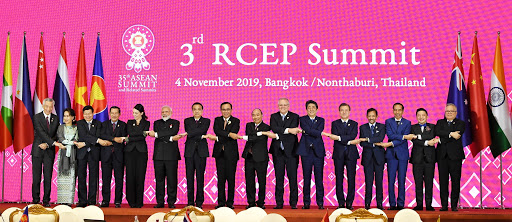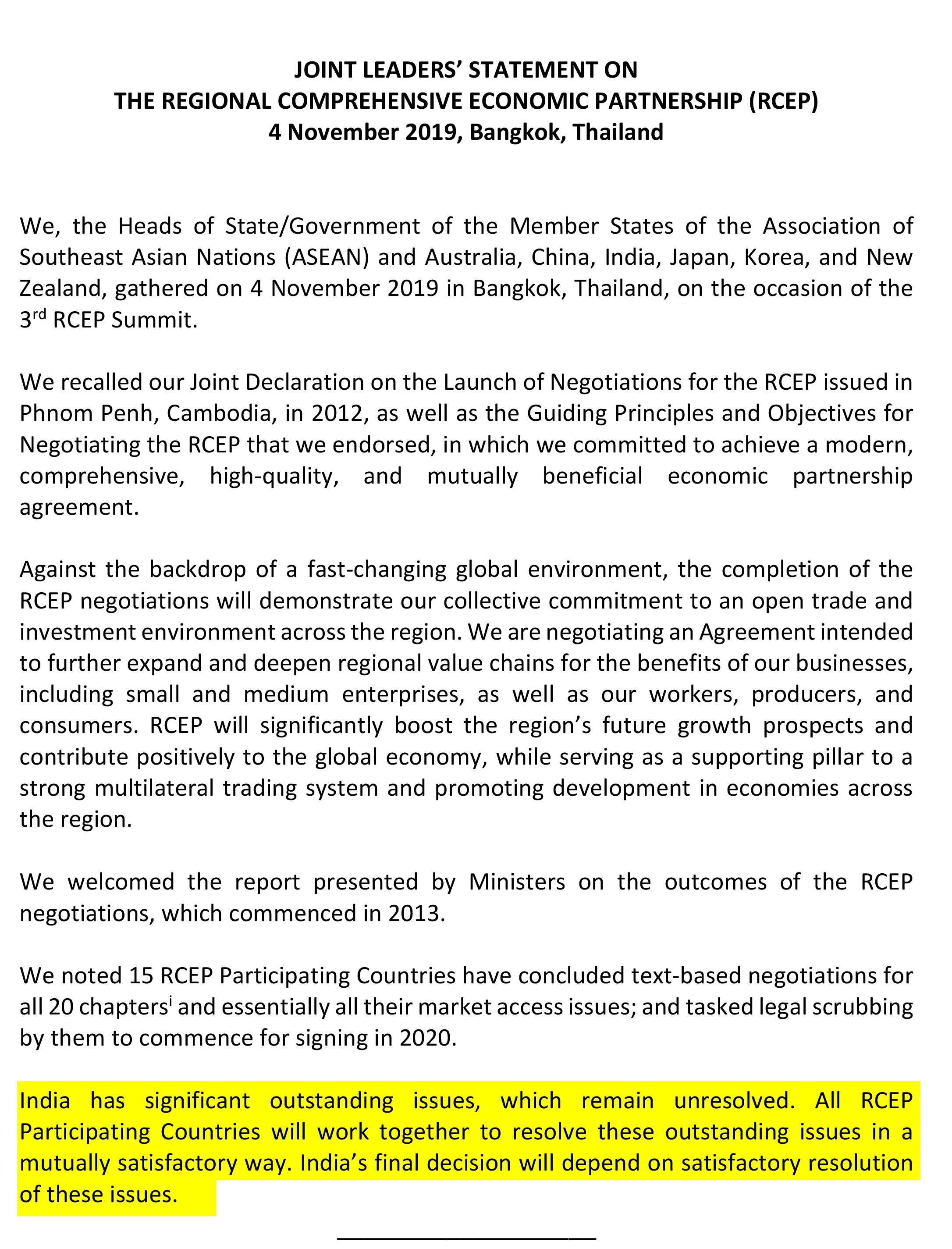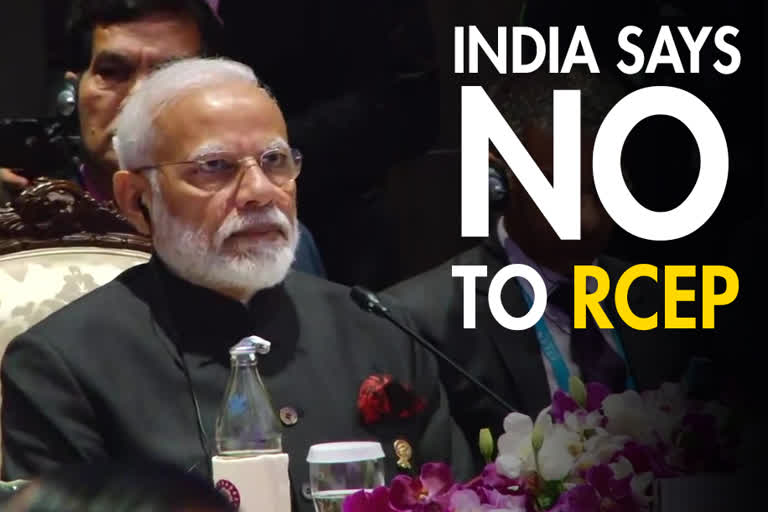Bangkok: Prime Minister Narendra Modi said on Monday that India will not join the mega Regional Comprehensive Economic Partnership (RCEP) deal as negotiations failed to satisfactorily address New Delhi's "outstanding issues and concerns".
Prime Minister Modi made the announcement during his speech at the RCEP Summit here, which was attended by several world leaders.

"The present form of the RCEP Agreement does not fully reflect the basic spirt and the agreed guiding principles of the RCEP. It also does not address satisfactorily India's outstanding issues and concerns. In such a situation, it is not possible for India to join RCEP Agreement," Modi said.
Sources said China was forcefully pushing for inking the deal during the RCEP summit in an attempt to counter-balance the impact of its lingering trade war with the US as well as to project the region's economic might to the West.
India has been forcefully raising the issue of market access as well as protected lists of goods mainly to shield its domestic market as there have been fears that the country may be flooded with cheap Chinese agricultural and industrial products once it signs the deal.
"India stands for greater regional integration as well as for freer trade and adherence to a rule-based international order. India has been pro-actively, constructively and meaningfully engaged in the RCEP negotiations since inception. India has worked for the cherished objective of striking balance, in the spirit of give and take," the prime minister said.
"Today, when we look around we see during seven years of RCEP negotiations, many things, including the global economic and trade scenarios have changed. We cannot overlook these changes," he added.

"When I measure the RCEP Agreement with respect to the interests of all Indians, I do not get a positive answer. Therefore, neither the Talisman of Gandhiji nor my own conscience permit me to join RCEP," Modi said.
The RCEP negotiations were launched by ASEAN leaders and six other countries during the 21st ASEAN Summit in Phnom Penh in November 2012. The objective of launching RCEP negotiations was to achieve a modern, comprehensive, high-quality, and mutually beneficial economic partnership agreement among the ASEAN member States and its FTA partners.
“India conveyed its decision at the summit not to join the RCEP agreement. This reflects both our assessment on the current global situation as well as fairness and balance of the agreement. India had significant issues of core interests that remained unresolved,” Secretary (East) in the Ministry of External Affairs Vijay Thakur Singh told reporters here.
The negotiations for the proposed free-trade agreement included 10 member countries of the Association of Southeast Asian Nations (Asean) and six of the bloc's dialogue partners -- China, Japan, South Korea, India, Australia and New Zealand.
If finalised, the RCEP would have become the world's largest free trade area, comprising half of the world population and will account for nearly 40 per cent of the global commerce and 35 per cent of the GDP.
The sources said except India, all 15 RCEP member countries were on board in finalising the deal at Monday's summit.
On Saturday, the trade ministers from 16 RCEP countries failed to resolve the outstanding issues identified by India though back-channel talks continued on the sidelines of the ASEAN summit to resolve the sticky issues.
This is not the first time that the Indian government under Prime Minister Modi has demonstrated a strong resolve in matters of international trade and related negotiations. US President Donald Trump who is known for his negotiation skills has himself called Modi a tough negotiator, sources said.
"Gone are the days when Indian negotiators caved-in to pressures from the global powers on trade issues. This time, India played on the front foot, stressing on the need to address India's concerns over trade deficits and the need for other countries to open their markets to Indian services and investments," government sources said.
They said the government of India during the UPA opened 74 per cent of its market to ASEAN countries but richer countries like Indonesia opened only 50 per cent for India.
India under the UPA also agreed to explore an India-China FTA in 2007 and join RCEP negotiations with China in 2011-12, they added.
The impact of these decisions has resulted in India's trade deficit with RCEP nations increasing from USD 7 billion in 2004 to USD 78 billion in 2014, they said.
Indian domestic industry is still reeling under the impact of these decisions, they added.
Read more: 'Downturn 'self-inflicted', most severe in 20 years'



